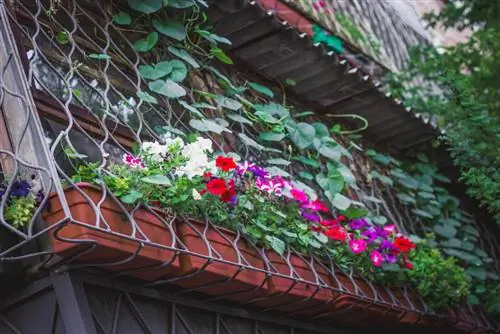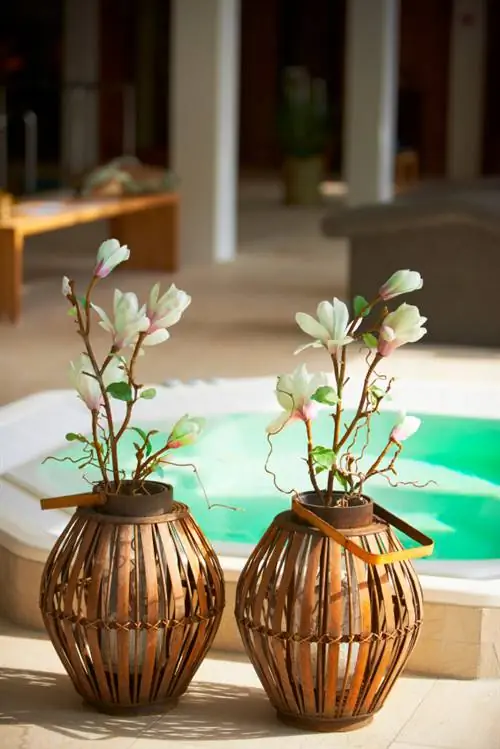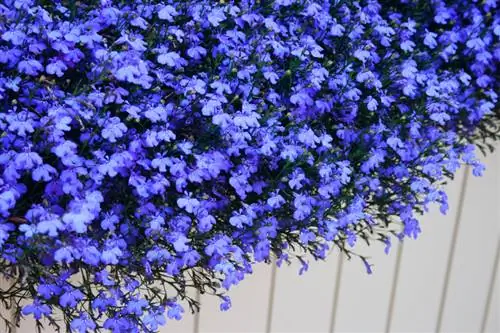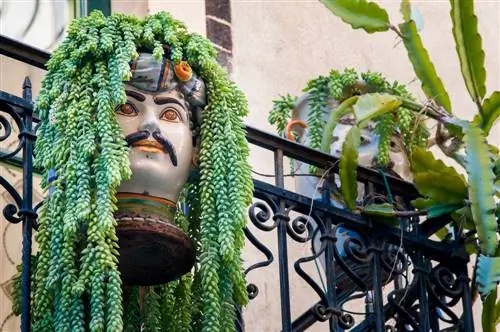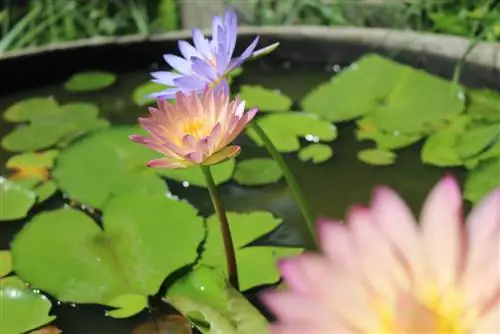- Author admin [email protected].
- Public 2023-12-16 16:46.
- Last modified 2025-01-23 11:19.
Every year the question arises as to which floral display should give our balcony a pretty look. The more down-to-earth begonias A classic, like the camellia? Or the ever-popular geranium?
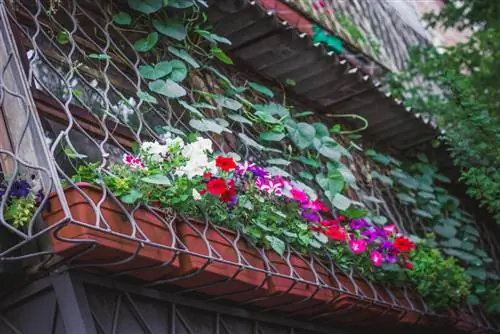
What tips are important when choosing balcony plants?
When choosing balcony plants, you should pay attention to the following criteria: personal taste, lighting conditions and location of the balcony, soil composition, care and water needs and the compatibility of the plant with other plants in your balcony paradise.
Rule No. 1: What you like is good
Selecting the right balcony plants is basically a highly personal matter. Not everyone likes the play of colors of fuchsia and some people find pansies a little annoying. Rule number 1 when choosing balcony plants is therefore: let your feelings be your guide. Or to put it another way: What you like is good. You can also find all sorts of tips for choosing the right balcony plants at gartenkalender.info
Rule No. 2: Each plant according to its needs
But it's not quite that simple, because rule 2 is: Meet the needs of your balcony plant. The vast majority of our balcony plants were originally native to tropical latitudes, and they have not lost their thirst for sunlight and warmth even after migrating to Central European regions. Is your balcony a shivering Northern Lights that doesn't see any sun all day? Then you should choose fuchsia, for example, a very grateful creature that produces its flowers even in the shade. Or is your balcony exposed to Sahara heat all day long in summer thanks to its southern orientation? Then you have many balcony plants to choose from that are very happy about the sunny location. Geraniums and petunias are classic sun worshipers that will thrive there. Some other plants, on the other hand, cannot tolerate so much sunlight; they would get “sunburn” and, in the worst case, die. Balcony plants can be planted largely without any problems if they face east or west; this usually offers the right mix of sun and shade and therefore a good compromise for many plants. A first-class partial shade plant, for example, is the begonia.
In addition to sunlight, the composition of the soil also plays a role. The vast majority of plants are quite happy with commercially available potting soil, but some require special nutrients, a lot of care and dedication. Every balcony flower is also different when it comes to their need for water. While some are allergic to waterlogging, other plants don't mind.
It would take too long to go into the needs of the individual varieties at this point. So let's just remember that every plant is different and needs to be treated accordingly.
Your flowers will thank you, with strong colors, good growth and last but not least - a real balcony paradise.

